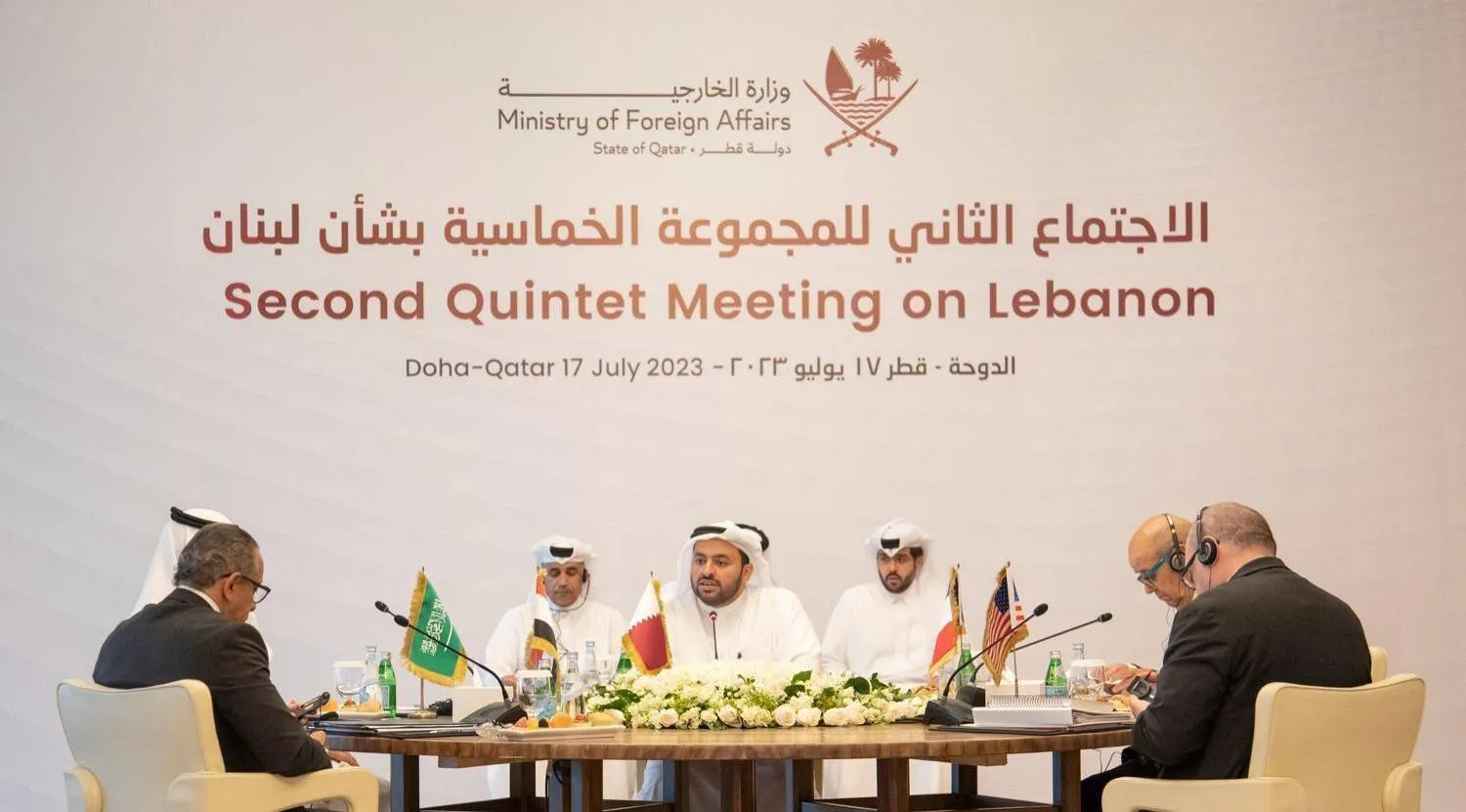The quintet for Lebanon has not drawn up a roadmap to resolve the crisis over the country’s presidential elections, revealed western diplomatic sources to Asharq Al-Awsat.
The quintet, which includes Saudi Arabia, Qatar, Egypt, France and the United States, met in Doha this week to tackle the political impasse in Lebanon.
Instead of presenting a roadmap, the members of the quintet, which included French Presidential Envoy to Lebanon Jean-Yves Le Drian, are waiting on Lebanese leaders to demonstrate a “clear will” to resolve the crisis in a way that appeases all parties.
The gatherers in Doha opted to focus on the post-election phase when a roadmap to end the political crisis would be put in place. The roadmap would steer clear of the idea of striking a deal over the presidency and position of prime minister. Such deals usually meant that the president would be loyal to one political camp and the PM loyal to its rival.
The gatherers did not name any preferred presidential candidate, while Le Drian did mention head of the Marada movement Suleiman Franjieh, the nominee backed by the Hezbollah party.
The Doha meeting put a halt to the French drive to hold dialogue among Lebanese parties and led to Le Drian postponing a trip to Lebanon.
French sources told Asharq Al-Awsat that the envoy will first hold consultations with members of the quintet before heading to Beirut.
Le Drian was hoping to arrange dialogue between representatives of political leaders, but the proposal was shot down by other quintet members because they believe it will not be productive.
The gatherers in Doha had kicked off their meeting with an assessment of the meetings Le Drian held with Lebanese officials during his recent trip to Lebanon.
A great divide is separating the Lebanese parties, concluded the gatherers, noting that Hezbollah is still attached to Franjieh’s nomination and refuses to negotiate on naming another candidate.
In return, the party pledged to “cooperate greatly” in other areas, namely in choosing a prime minister, on the formation of a government and on major appointments in state institutions.
The party’s position was met with disappointment from a number of quintet members, prompting them to propose that sanctions be imposed on sides that are hindering a solution to the political impasse. After discussions, it was agreed that the quintet would threaten to take “measures” against the obstructors when it meets again.
Asharq Al-Awsat learned that the quintet will meet again in France in September.
The sources said the quintet agreed to intensify and expand coordination between its members.









